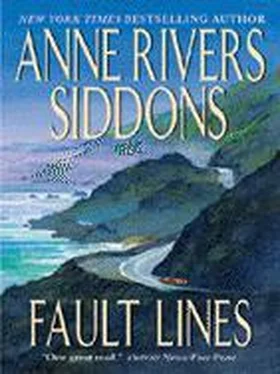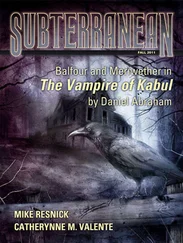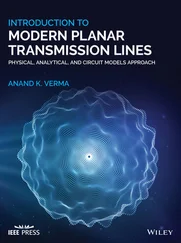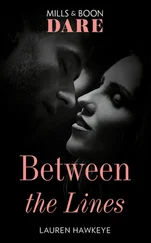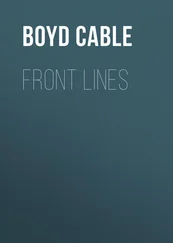Anne Siddons - Fault Lines
Здесь есть возможность читать онлайн «Anne Siddons - Fault Lines» весь текст электронной книги совершенно бесплатно (целиком полную версию без сокращений). В некоторых случаях можно слушать аудио, скачать через торрент в формате fb2 и присутствует краткое содержание. Жанр: Старинная литература, на английском языке. Описание произведения, (предисловие) а так же отзывы посетителей доступны на портале библиотеки ЛибКат.
- Название:Fault Lines
- Автор:
- Жанр:
- Год:неизвестен
- ISBN:нет данных
- Рейтинг книги:3 / 5. Голосов: 1
-
Избранное:Добавить в избранное
- Отзывы:
-
Ваша оценка:
- 60
- 1
- 2
- 3
- 4
- 5
Fault Lines: краткое содержание, описание и аннотация
Предлагаем к чтению аннотацию, описание, краткое содержание или предисловие (зависит от того, что написал сам автор книги «Fault Lines»). Если вы не нашли необходимую информацию о книге — напишите в комментариях, мы постараемся отыскать её.
Fault Lines — читать онлайн бесплатно полную книгу (весь текст) целиком
Ниже представлен текст книги, разбитый по страницам. Система сохранения места последней прочитанной страницы, позволяет с удобством читать онлайн бесплатно книгу «Fault Lines», без необходимости каждый раз заново искать на чём Вы остановились. Поставьте закладку, и сможете в любой момент перейти на страницу, на которой закончили чтение.
Интервал:
Закладка:
“Give my regards to Dr. Kildare and tell him to go fuck himself,” the note that I found on the kitchen table the next morning said. “Tell him not to worry, he won’t see me again. Neither will you. I’m taking your Mastercard. Maybe I’ll even pay you back one day, but don’t hold your breath.”
It was signed Laura Louise Mason.
And, except for a very few times when she came through town on some theater movie business or another, I did not touch the sweet white flesh of my sister Laura again for a long, long time, though I sometimes glimpsed a bit of it, briefly, on film.
There was never a day between that one and this that I have not missed her.
On the hot afternoon in the early summer of 1995, when I went down through the parched grass to the Chattahoochee River behind our house to set the latest Rattus ratti free, I still missed her as sharply as ever. I could almost see the child she had been skipping ahead of me on the path in the heat shimmer; I could almost see the angry, beautiful nineteen-year-old she had been when she left.
“I miss my girls,” I whispered to the big black rats I was bearing to freedom in the wire trap. “I miss Laura. I miss Glynn.”
My sister. My daughter. My sister, Laura, my daughter, Glynn, the thought of whom still, after sixteen years, gave me a small, fresh shock of joy and surprise. My daughter, my good, good girl…
The rats, who had been quiet, looked at me with their whiskered Chinese faces and black, glinting little eyes, and began again to scrabble and squeak in their prison.
“Chill out,” I said, shaking the cages slightly. “You’re almost home free.”
2
Pom was obsessed with the rats. The first thing he did when he got up in the morning and came home at night was to check for bodies. When the first poison failed to give satisfaction, the exterminators brought out different traps, matte black and high-tech, and placed them about, baited with poisoned birdseed. Birdseed was, they said knowingly, the rat chow of choice. Ours were not interested, but Mommee was: The first night the traps were set out we heard a muffled thump and a howl and found Mommee shrieking in the upstairs hall, her hand stuck in one of the traps. After that we set them out of sight, but the rats did not bite. Instead they gnawed electrical cords and burrowed through two inches of carpet and flooring to get into a closet where I had stored and forgotten a waxed wheel of cheddar from Vermont. We found their neat little oblong droppings in different places every morning. The few who did take the bait inevitably died, reeking, in the walls.
The rats came, the exterminators said, from the river and the grass and weeds around it. Another big development was going up just upstream from us, and when the trees were felled and the ground cleared the rats came downstream looking for more hospitable housing. Pom had suffered the squadrons of invading raccoons with fairly good grace, because they had not yet managed to get into the house, but the rats maddened him.
“Somebody damned well should have told us about that development before we closed on this house,” he raged. “But oh, no; everybody swore that all the rest of the river land belonged to a little old lady who would never sell. I wouldn’t have bought this house if I’d thought we were going to be covered up with subdivisions and rats.”
“Well, little old ladies will go and die,” I said, giving his untidy hair a ruffle. “Apparently her children didn’t share her ecological ideals.”
“We might as well have stayed in Garden Hills,” he grumbled.
I wish we had, I thought, but did not say.
Pom bought the house on the river five years before, when a fellow physician at Buckhead Hospital retired and moved to Captiva. He went with his friend out to see his house on the river and called the real estate agent that night. He drove me and the children out to see it the next day, as a surprise. The four of us stood in the pale lemon sunshine of a Georgia autumn and looked at the big stone pile fitted into the edge of the river forest and fronted with green winter rye as smooth as a goofy golf course. Behind it the hardwoods flamed and the river ran swift and silent between its overgrown banks. There were no other houses in sight. Plantings were lush and perfectly tended, chrysanthemums burned in the neatly mulched borders and in big Chinese urns on the terrace, and a small oblong attached to the Realtor’s sign said “heated pool.” The house was intimidating to me; it seemed enormous in the emptiness and the river silence. It was well designed, obviously the work of an architect and not a builder drunk on châteaux and faux Tudor; it fit its site nicely, and there was not a Palladian window in it. I thought it was handsome, and the boys and Glynn frankly gaped in awe. But it did not then and does not now look like home.
“Do you like it?” Pom grinned.
“For what? To live in?” said seventeen-year-old Jeff.
“Where are all the neighbors?” said eleven-year-old Glynn.
“There’s a pool! Cool! The guys will all want to come home with me,” said Chip, who was twenty and in his sophomore year at Wake Forest. His fraternity was so far the dominant institution in his life.
“Pom, I could never keep this thing clean,” I said. I don’t know why I said it. I had Ina three mornings a week now, and I knew that she had more time. In truth, I loved the shabby, bursting Cape Cod in Garden Hills where we had raised his sons and our daughter. I loved my neighbors and the aging, jointly owned pool and playground and the overwhelming sense of community that emanated from the neighborhood like sweet breath. I did not want to move. We had never even seriously talked about moving.
It was obvious that Pom loved the house. We needed the room, he said; the boys already needed a place to entertain their friends and Glynn soon would. Westminster was just over the hill; I wouldn’t spend hours car pooling anymore. There was luxury shopping and some good new restaurants over in nearby Vinings. He was sick of the fumes and clamor of the city; he wanted us to have the peace of the river and the woods while we were still young enough to enjoy them. He had always missed the unspoiled outdoors of his boyhood. He could have the hunting dogs he had long wanted; Glynn could have her pony at last. I could garden to my heart’s content. I could have a splendid custom office for the freelance writing I planned to do, now that the children were older. And it undeniably lent the clinics an air of respectability and substance to have their director living in a house like this. It would be good for business and even better for entertaining, and he was going to have to do increasingly more of that.
“It’s not going to hurt Glynn’s prospects to live here, either,” he said, smiling at her and then at me.
“Prospects for what?” Glynn and I said together.
“Oh…the Peachtree Debutante Club and the Junior League and all that stuff, an appropriate marriage,” he said, flipping the back of Glynn’s smooth, ash-blond Dorothy Hamill cut. “I know you don’t care about that stuff now, Punkin, but you will.”
“No, I won’t,” she said with her lips, but there was no sound behind it. I don’t think Pom noticed. I looked at him in amazement. I did not know he cared about that stuff, either. I didn’t know he used terms like “appropriate marriage.” I didn’t know he wanted a house like this. When had all this happened?
We closed on the house the following week and moved in just after Thanksgiving. Our first Christmas there looked like Lord and Taylor’s Fifth Avenue window. The tree that stood in the two-story foyer was fifteen feet tall. Anything else would have looked like a toy. The children and I crept about the huge new spaces, getting lost and looking involuntarily over our shoulders and out into the dark winter woods, where nothing or anything might be watching us. Pom worked as late and long as he ever had, but he never failed to take a turn around his castle when he got in at night. The rest of us came to appreciate much about it; Pom fell deeper and deeper in love. He hated the encroaching armies of shoddy, expensive subdivisions that swarmed around it as a cultivated Roman might hate the battering Visigoths, and I think the rats came to be a symbol of all that threatened his new kingdom. He would not rest until he ousted them.
Читать дальшеИнтервал:
Закладка:
Похожие книги на «Fault Lines»
Представляем Вашему вниманию похожие книги на «Fault Lines» списком для выбора. Мы отобрали схожую по названию и смыслу литературу в надежде предоставить читателям больше вариантов отыскать новые, интересные, ещё непрочитанные произведения.
Обсуждение, отзывы о книге «Fault Lines» и просто собственные мнения читателей. Оставьте ваши комментарии, напишите, что Вы думаете о произведении, его смысле или главных героях. Укажите что конкретно понравилось, а что нет, и почему Вы так считаете.
